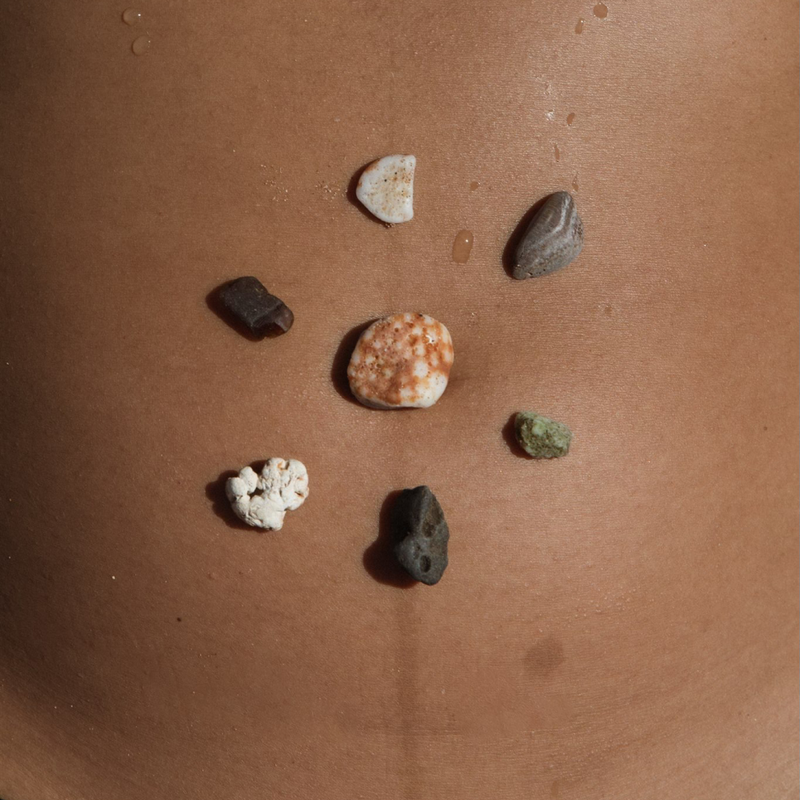When it comes to pregnancy cravings, there seems to be no real rhyme or reason to the things you do (or don't) crave. Some people get them, some don’t. Some get them early, some later in pregnancy. Some lead to, erm, interesting food combinations, while others just have strong desires for specific flavors. While these cravings are widely talked about, many wonder why they happen and what, if anything, they mean. Here’s everything you want to know about pregnancy cravings and what to keep in mind for a healthy pregnancy.
Why Do Pregnancy Cravings Happen?
Pregnancy cravings are believed to result from a combination of physiological and psychological factors.1 A primary cause is the body’s hormone levels, which change significantly throughout pregnancy. These hormonal shifts can affect taste and smell, making certain foods more desirable. Additionally, pregnant individuals need more nutrients to support their growing baby, and some researchers suggest that cravings may be tied to these heightened nutritional demands.1 For instance, cravings for meat or dairy could be linked to protein or calcium needs, while a sudden taste for citrus fruits could signal a need for more vitamin C.2
Psychological factors play a role, too. Pregnancy can be an emotionally intense period, and cravings for comfort foods might reflect a desire for stress relief or self-soothing.3 Social and cultural influences also contribute; pregnant people may hear stories about other moms’ cravings or pick up ideas from media, which can shape what they feel they want or expect to crave.3
Common Pregnancy Cravings
Pregnancy cravings vary widely from person to person, but some patterns can emerge. Here are a few types of foods commonly craved during pregnancy.
- Sweets: If you’ve found yourself craving anything with sugar, you’re not alone. Many pregnant individuals report cravings for sweets like chocolate, ice cream, and cake. Some researchers believe that this is the body’s way of getting quick energy, as growing a baby is metabolically demanding.4
- Salty Foods: Salt cravings are also common, with many people craving chips, pickles, or other salty snacks. One reason why this could be is that Increased blood volume in pregnancy can lead to slightly lower sodium levels, which could trigger a desire for saltier foods.5
- Spicy Foods: This one can be explained with the idea that pregnancy can change your tastebuds and flavor receptors. It can also be culturally comforting, or in another theory, work to induce sweating (and thus, cooling yourself down).
- Sour or Tangy Flavors: Foods like lemons, limes, or sour candies can be particularly appealing to pregnant individuals. This craving may be a way of countering pregnancy-induced nausea or simply due to heightened sensitivity to intense flavors.6
- High-Protein Foods: Some people crave meat, eggs, or dairy products during pregnancy, which could be due to increased protein needs to support fetal development.4
- Unusual Combinations: Many have heard stories of strange pregnancy cravings, such as pickles and ice cream or other combos. These combinations are usually chalked up to the intense (and sometimes conflicting) food desires that come with pregnancy.
- Non-Food Cravings (Pica): Sometimes, pregnant people crave non-food items like ice, chalk, or clay—a condition called pica. This can signal an iron deficiency and should be discussed with a healthcare provider.7
$49.95
$49.95
$44.95
Shop the Article:

1st Trimester Prenatal Pack
/ Month
Shop Now

2nd Trimester Prenatal Pack
/ Month
Shop Now

Synbiotic Greens Powder
/ Month
Shop Now
Managing Pregnancy Cravings for Health
While most cravings are harmless (seriously—do what’s best for your body and mental health), there are ways to balance cravings. Here are some tips to satisfy your cravings while keeping on top of nutritional needs.
- Choose Nutrient-Dense Options: If you crave sweets, consider healthier alternatives, like fresh fruit (and something to dip it in, like peanut butter or caramel) or yogurt with honey. For salty cravings, try a handful of nuts or whole-grain crackers with cheese.
- Balance and Moderation: If you want a particular indulgence, enjoy it in moderation. Allowing small portions of what you crave can help satisfy the desire without leading to excessive consumption.
- Stay Hydrated: Sometimes, what feels like a craving is actually thirst. Drinking enough water can help reduce unnecessary snacking and ensure you’re hydrated.
- Plan Ahead: If you know you’ll likely crave certain foods, try to keep healthier versions of those items on hand to satisfy your desire without derailing your nutrition.
When to Talk to Your Doctor
Most pregnancy cravings are normal, but if you experience cravings for non-food items (pica), it’s essential to speak with your healthcare provider. Craving things like dirt or clay can be dangerous, as these substances may contain harmful chemicals or pathogens. Additionally, pica is often linked to nutrient deficiencies, such as iron or zinc, which may need to be addressed for a healthy pregnancy.7
Embracing the Cravings
Pregnancy cravings can be a memorable part of the pregnancy experience. While they can feel random, cravings are often a natural response to the physical and emotional demands of pregnancy. By listening to your body, making choices that support your nutritional and mental health needs, and keeping communication open with your doctor, you can enjoy this part of pregnancy guilt-free—because there’s no guilt in providing your body and your baby with the care they need during this special time. Enjoy it.

theFolio in Your Inbox
Sign up to receive doctor-backed, stage-specific content in your inbox each week.
This article is for informational purposes only. It is not, nor is it intended to be, a substitute for professional medical advice, diagnosis, or treatment and we recommend that you always consult with your healthcare provider. To the extent that this article features the advice of physicians or medical practitioners, the views expressed are the views of the cited expert and do not necessarily represent the views of Perelel.
References:
- Food cravings in Pregnancy: A Hypothesis, Frontiers in Psychology
- Is there a relationship between children’s behavior and food cravings during pregnancy?, NIH
- Women’s Experience and Understanding of Food Cravings in Pregnancy: A Qualitative Study in women receiving prenatal care at the University of North Carolina- Chapel Hill, NIH
- Impact of Sugary Food Consumption on Pregnancy: A Review, NIH
- Salty Foods During Pregnancy, Baby Center
- Morning Sickness Remedies, American Pregnancy Association
- Pica during pregnancy: a frequently underestimated problem, NIH





















